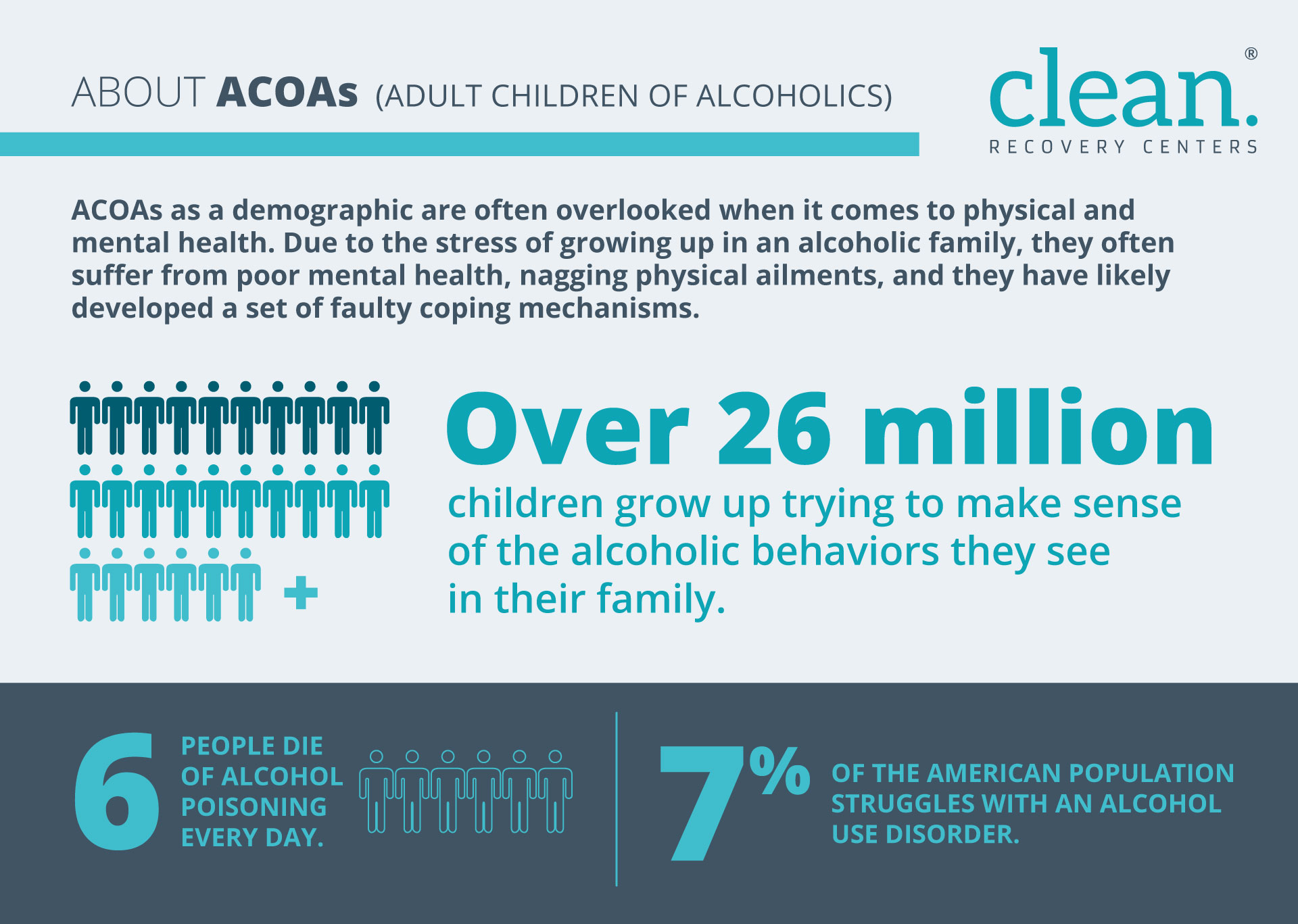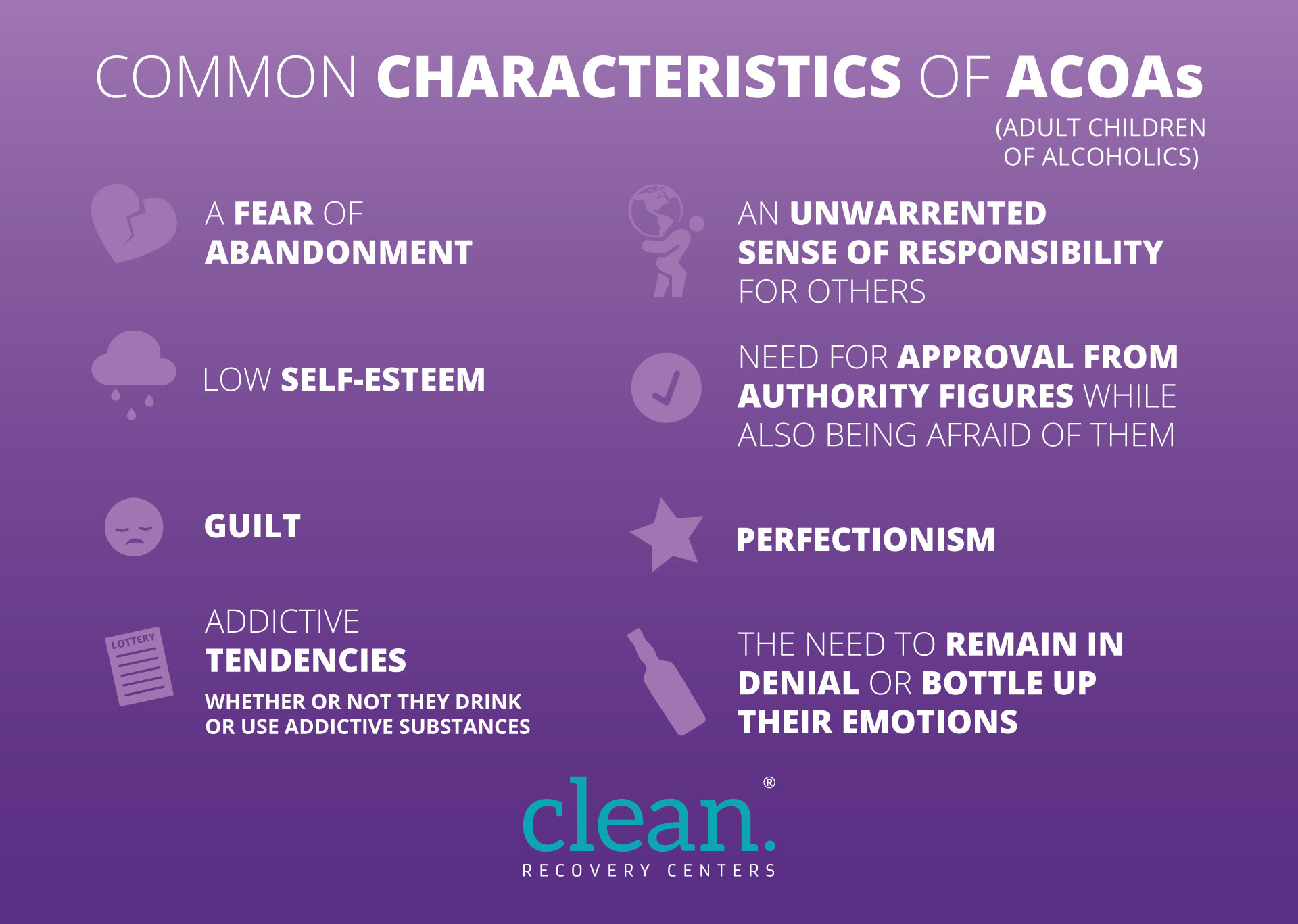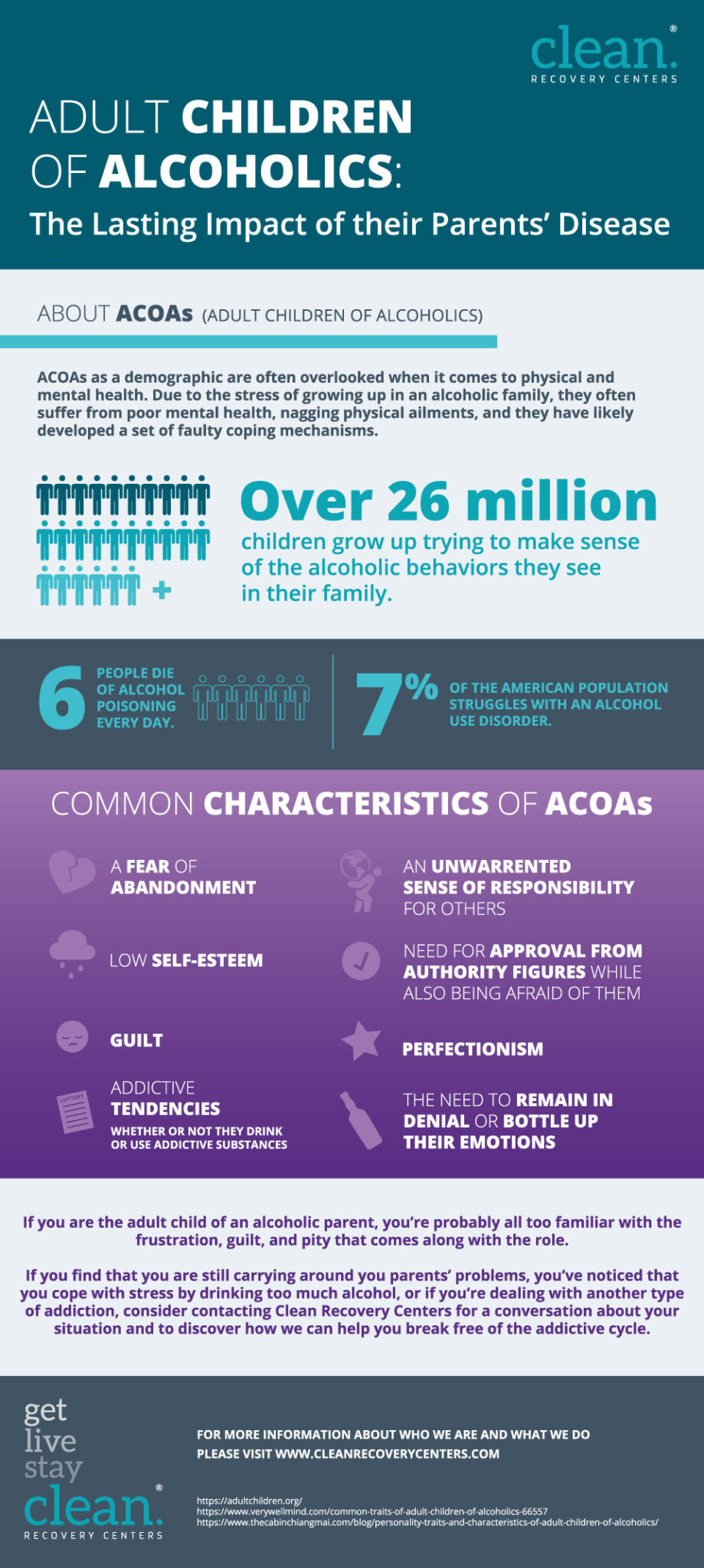Adult Children of Alcoholics: The Lasting Impact of Their Parents’ Disease
Over 7% of the American population struggles with an alcohol use disorder. Six people die of alcohol poisoning per day. Have you ever wondered how many of these people have children? Or are you one of these former children? If you, like so many others, are the adult child of an alcoholic parent, you might feel different from others or alienated from your peers. While your experiences are certainly unique to you, you are not alone: the statistics tell a story of over 26 million children who grow up trying to make sense of the alcoholic behaviors they see in their family.
Adult children of alcoholics are an often overlooked demographic when it comes to mental and physical health care. Due to the stress of growing up in an alcoholic family, they often suffer from poor mental health, nagging physical ailments, and they have likely developed a set of faulty coping mechanisms for dealing with the world at large: They can feel angry toward authority figures while at the same time craving their praise. They can have tumultuous relationships due to the lack of stability in their childhoods. They are not necessarily addicts themselves, but they can be – and addiction feels normal to them. ACOAs share a list of common characteristics due to their experiences growing up as children of parents who suffered from alcohol addiction.

Common Characteristics of ACOAs
Alcoholism affects the entire family. Many ACOAs look back on a childhood of taking care of or making excuses for their alcoholic parent(s). They’re used to cleaning up messes, looking after younger siblings, and exercising their overdeveloped sense of responsibility to cook meals, clean the house, and even drive themselves to school when their parent fails to do so. While not every trait in this list will pertain to everyone who grew up in an alcoholic family, there are enough similarities to warrant concern. Read through the next few points to see what you might have in common with other ACOAs. It might be more than you think.
If you are an ACOA, you might have:
- A fear of abandonment
- An unwarranted sense of responsibility for others
- Addictive tendencies (whether or not you actually drink or use addictive substances)
- A need to seek approval from authority figures while also being afraid of them
- Low self-esteem
- Perfectionism
- Guilt
- The need to remain in denial or to bottle up emotions
While this is not an exhaustive list, these are common traits of many ACOAs. If you have never spoken to someone familiar with ACOAs, you might find this list surprising. There are others out there like you who have formed support groups and constructed websites and blogs in order to share their experiences. Additionally, there are a number of therapists and counselors who actually specialize in dysfunctional families as well as the adult children of alcoholics. While it might be too late for your family to go into therapy, there’s help available to you if you want it.

Physical Ailments of ACOAs
Whether you view your physical ailments as an outgrowth of your lack of coping mechanisms or something else entirely, it’s an unfortunate truth that many ACOAs contend with physical as well as mental health problems. As a child coping with your parent’s disease, you might have experienced stomachaches, headaches, and other anxiety-related illnesses. As an adult, you might still suffer from these ailments even though you are no longer a child in your parent’s house. These symptoms might resurface when you visit your parents or even when you speak to them on the phone. Your health might suffer in other ways, too: Chronic pain conditions, like fibromyalgia, are very real physical conditions that are often triggered by intense stress such as that experienced by an ACOA during childhood.
Love or Pity? The Effect of Codependency
As an ACOA, you might have questioned your relationships – romantic and otherwise – because what you often feel for another person is wrapped up in guilt, fear, and the need to take care of your partner. ACOAs often become stuck in a cycle of unhealthy and often codependent relationships in which they use their partner’s attention and affection to stand in for their self-esteem. Unfortunately, they often repeat their prior relationship with their alcoholic parent by finding an alcoholic partner (or one with another addiction). They might overlook their partner’s addiction, enable the addiction, or simply suffer in silence and stay in a dysfunctional relationship in order not to lose the affection they crave.
Codependency requires a special note, because while many people have heard the term, what ACOAs experience on a daily basis is not necessarily the pop-psych version of the word. Children of alcoholics sometimes have to take care of an alcoholic parent while raising themselves, so it’s normal for them to feel enormous responsibility for others – especially when they are in a romantic relationship as an adult. This might benefit them in some ways: many ACOAs are extraordinarily kind and they are able to show impressive empathy towards fellow human beings. However, in a romantic relationship, this can lead to caretaking, fear of being alone (and therefore having no responsibility for another person, which can be scary for an ACOA as caretaking often becomes their identity), and, in a worst case scenario: enabling a partner’s addiction. It’s common for ACOAs to be alcoholics themselves. Even if they are teetotalers, they might become serious with a partner who has addictive tendencies. Addiction, to them, is a normal state of life.
Benefits of Being an ACOA
Listing the good side of growing up as the child of an alcoholic might seem akin to talking about all the great things you learned from going to war, but it’s true – there are some great personality traits common to ACOAs. While you cannot change your childhood, you can take stock of how going through a difficult situation helps you deal with your present. It’s true that many ACOAs have unhealthy relationships, an overdeveloped sense of responsibility, and self-esteem issues, but even the unhealthiest ACOA has good traits as well. Consider, for example, the caretaking aspect: it’s true that many ACOAs feel overly responsible for others – especially their partner’s – but the desire to act on your empathy and care for another person is not a bad one. Neither is your intense loyalty, your selflessness, or the fact that you are tuned into others’ emotions. When used in a healthy way, these traits make you a strong person whose company others desire.
If you are the adult child of an alcoholic parent, you’re probably all too familiar with the frustration, guilt, and pity that comes along with the role. You know that these feelings, and the aftereffects of your parent’s disease, do not magically vanish once you leave home. If you find that you are still carrying around your parents’ problems, you’ve noticed that you cope with stress by drinking too much alcohol, or if you’re dealing with another type of addiction, consider contacting Clean Recovery Centers for a conversation about your situation and to discover how we can help you break free from alcoholism. You didn’t start it, but you can end it. Reach out to us today at 888-330-2532 or use the chat feature on our main page for a free, anonymous consultation.
Infographic: Adult Children of Alcoholics
View the full Infographic about ACOAs (Adult Children of Alcoholics) and the impact their parents alcohol use disorders have on their lives.
Sources:
- https://adultchildren.org/
- https://www.verywellmind.com/common-traits-of-adult-children-of-alcoholics-66557
- https://www.thecabinchiangmai.com/blog/personality-traits-and-characteristics-of-adult-children-of-alcoholics/
- https://www.nhs.uk/conditions/fibromyalgia/causes/#:~:text=Fibromyalgia%20is%20often%20triggered%20by,a%20viral%20infection
- https://www.jodylamb.com/2016/09/my-story-growing-up-with-an-alcoholic-parent/



